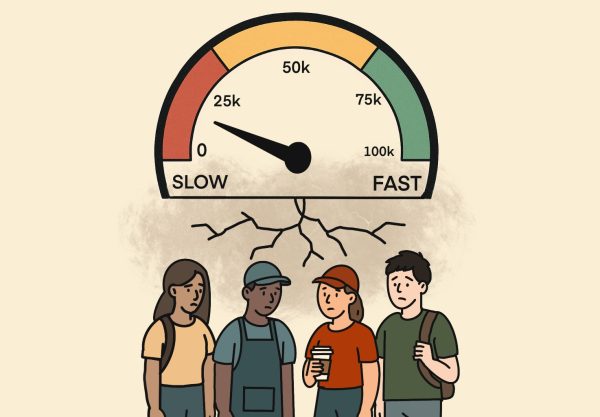Judge orders review of provisional ballots in undecided governor’s race
Order comes four days after Republican candidate Brian Kemp resigns as Secretary of State
Bob Andres/Atlanta Journal-Constitution via AP
Former Secretary of State Brian Kemp (right) shakes hands with Georgia Governor Nathan Deal (left) on Nov. 8, as Kemp resigns from his position.
A federal judge has ordered a review of provisional ballots four days after Republican Brian Kemp resigned his position as Secretary of State on Thursday, Nov. 8, and six days after the gubernatorial election in which Kemp faced Democrat Stacey Abrams and Libertarian Ted Metz and a clear winner has yet to be determined.
U.S District Court Judge Amy Totenberg has ordered that a hotline be set up to allow voters to check the status of their provisional ballots.
Kemp’s resignation comes after a group of Georgia voters filed a lawsuit against him calling his concurrent role as Secretary of State and campaigning governor a conflict of interest. The lawsuit claims Kemp has been using “the official powers of his office to interfere in the election to benefit himself and his political party and disadvantage his opponents.”
Chorus instructor Kevin Hill believes the time is right for Kemp to resign, and should have happened sooner.
“I think in [Kemp’s] mind, he is [resigning] because he has to do that to get ready to be governor. But, I don’t think it’s right for him to be behaving like he has already assumed the position. I think it’s out of line for him to not have stepped down way earlier,” Hill says.
Allegations of abuse of power have not stopped the Republican candidate, as he declared victory on Wednesday, Nov. 7.
Kemp has 50.3 of the votes and Abrams, 48.7 percent. Absentee and provisional ballots are still being counted.
“Most of the absentee and provisional ballots have not all been counted, and the majority of them will most likely go to Stacey Abrams anyway,” junior Anthony Cochran believes. Cochran isn’t an election expert and is just expressing his opinion as a non-voting age student.
If neither candidate receives 50 percent of the vote plus one vote, the first ever general election runoff will occur on Dec. 4.
Runoffs typically happen a few weeks after the general election or primary election, where the top two polling candidates will be listed on the runoff ballot. If there were to be a runoff, on Dec. 4, the vote would take place as it normally would, but with only Stacey Abrams and Brian Kemp as the candidates.
No general election has ever gone into a runoff, but a few have gone into “overtime,” where Republican nominees have prevailed time and time again.
“Stacey Abrams is going to take [Kemp] to court, she’s already started the process, to challenge the results, which would prevent him from immediately stepping into office. I think when it’s all said and done, he’s going to end up winning,” said social sciences teacher Noel Erskine.
Cochran believes otherwise.
“If we go into a runoff election, the majority of the libertarian votes will likely go to Stacey,” Cochran says.
Despite all the talk of the election going into overtime, the gubernatorial race is just heating up.
Kemp, after declaring victory on Nov. 7, said it is mathematically impossible for Abrams to win the election, which raised many questions about his integrity given his involvement in elections as the Secretary of State.
Yet, Abrams refuses to concede the election saying that, “Democracy only works when we work for it, when we fight for it, when we demand it. We believe our chances for a stronger Georgia is just within reach. But we cannot seize it until all voices are heard and I promise you tonight sure that every vote is counted.”

Bria Brown is a second year staff member on the Southerner as well as a senior in the Class of 2020. She is currently Photography/Multimedia Editor and...












